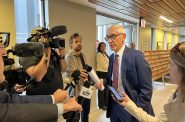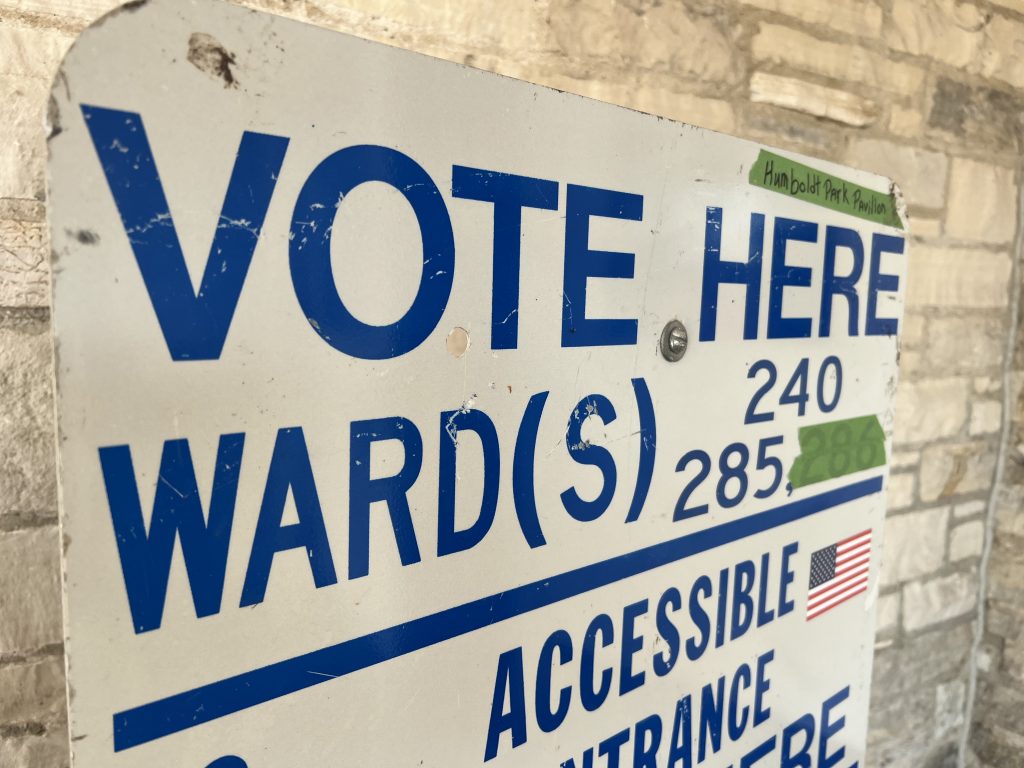Will Legislature Change Election Laws?
Republicans may back earlier recount of absentee ballots -- along with other changes.
What a difference. The month after the presidential election has seen no national cries of “fraud,” of “stolen” votes or “conspiracy.” No investigations were launched of Wisconsin voting systems or totals. There were no Wisconsin recounts, unlike four years ago when the presidential votes in Dane and Milwaukee counties were retallied. No lawsuits challenged the results.
“This election was, by all accounts, smoothly administered across the state,” concluded Republican Rep. Scott Krug, chair of the Assembly’s Campaigns and Elections Committee, in a Wisconsin State Journal op-ed.
Yet there is talk of making some changes in Wisconsin’s election laws. How could they be made even stronger before 2026 votes are cast for U.S. House members, governor, attorney general, treasurer, secretary of state and members of the Legislature?
“The simplest first step we can take is to pre-process absentee ballots before election day,” Krug added. “When election workers can’t process those ballots prior to Election Day, it forces the hands of administrators.”
Krug said his committee last session recommended several specific changes to election laws, including allowing absentee ballots to be counted before Election Day.
But while Democratic Gov. Tony Evers favored this change, he disagreed with Republicans on other changes they proposed before the presidential election in Wisconsin, one of several so-called “battleground” states expected to decide the winner.
When 1,800 local clerks have to first scramble to find poll workers, and then reschedule those workers to count the avalanche of absentee ballots, it invites questions and unfair criticisms in a state as politically divided as Wisconsin.
And the issue will not go away: The trend of record numbers of voters asking for absentee ballots and casting them in person, by mail or in secure drop boxes, is here to stay.
It’s a “healthy sign” that 1.5 million Wisconsin voters requested absentee ballots, and 950,000 of them cast in-person absentee ballots before the Nov. 5 election, Krug said, adding: “If we are able to pass legislation to address early-ballot processing, you can say goodbye to the ‘late-night ballot dumps’ that have become infamous … and fueled the fire of conspiracy across the country.”
At the height of the COVID-19 pandemic, almost 1.9 million voters requested absentee ballots before the November 2020 presidential election and more than 644,000 of them cast them in person.
Don Millis, a Republican appointee to the six-member Wisconsin Elections Commission (WEC) that oversees voting in Wisconsin, agreed that “allowing clerks to count absentee ballots the Monday before the election is probably the simplest change in the election procedure to which the governor could agree.”
“The goal would be to make Election Day run smoother and, more importantly, increase confidence in elections by avoiding dropping 200,000 votes after midnight on election day,” Millis said last week.
But what seems like a simple change may again get complicated, added Millis, who has decades of experience with election laws. “My concern is that we will still have pushback from the governor if such a change includes needed safeguards like permitted access by observers to the opening of envelopes.”
Two other changes should be made before the 2026 election cycle, Millis said.
First, require “people requesting absentee ballots to reference the identification number that is already in the possession of the clerk,” Millis added. “This would prevent the type of mischief that was undertaken by [two individuals] in 2022. The governor vetoed that legislation in the past. I am afraid he will do it again.”
Second, Millis said Evers and Republican legislators should approve the “most significant” request in the Elections Commission’s proposed 2025-’27 budget — $2 million to set up and operate an “office of election transparency.”
An Elections Commission memo says the new unit would “increase the agency’s ability to audit election results, conduct data integrity audits, increase voter accessibility programs and polling place audits, and research public or legislative inquiries.”
The same request was made two years ago but not approved. But the Legislature “may desire, in future elections, additional independent audits, and increased capacity for accessibility initiatives,” the memo noted.
After his re-election as Assembly speaker, Rep. Robin Vos promised to sponsor a constitutional amendment that would require every voter to show photo ID, which is a state law that could be repealed. That constitutional change could not be approved before 2027.
Another potential change would come if the Supreme Court rules that Elections Administrator Meagan Wolfe, whose term has expired, no longer has that job. A Dane County judge dismissed Republican senators’ effort to fire her.
Steven Walters started covering the Capitol in 1988. Contact him at stevenscotwalters@gmail.com.
The State of Politics
-
Evers Has Appointed 63 Judges
 Jan 5th, 2026 by Steven Walters
Jan 5th, 2026 by Steven Walters
-
Top 10 Stories of The Year
 Dec 29th, 2025 by Steven Walters
Dec 29th, 2025 by Steven Walters
-
Planes, Highways and Outer Space Keep Duffy Busy
 Dec 22nd, 2025 by Steven Walters
Dec 22nd, 2025 by Steven Walters























Wisconsin elections ran smoothly in 2024.
Republicans may want to change election laws.
When are these butt-brains ever happy?!? They refer to the so-called “ballot dumps” like they are actions created by some nefarious outside group, intent on ruining elections of every ReTrumplican for all time, when in fact they are the result of election laws they insisted upon!